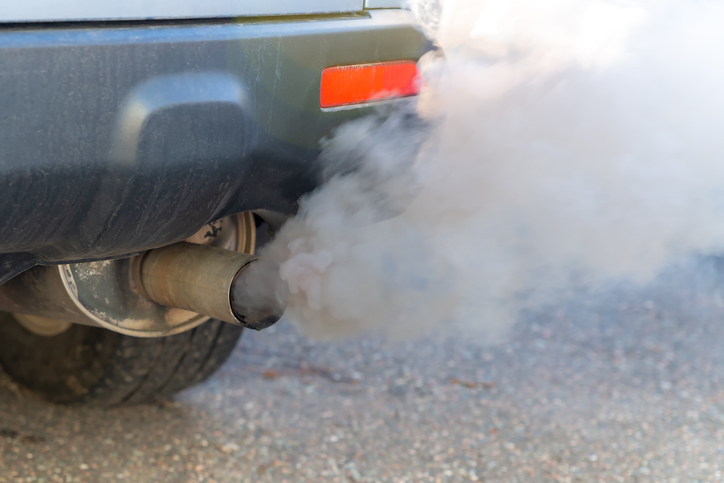
Law enforcement, TCEQ Spar Over Extent of Car Emissions Testing Fraud
Local law enforcement is in a tussle with the Texas Commission on Environment Quality (TCEQ) with regard to how rampant the emission testing fraud is spread across the state.
According to KXAN reporting, TCEQ aims to understand the reason behind investigators’ opinions on the “clean scanning” process. To elucidate, as a part of this process, fraudulent emission tests are registered as official state records. The Texas Commission wants to know why the investigators consider that in 2022, five million vehicles were illegally inspected under this scheme.
“We need to step up and have an overdramatic response to this, OK?,” said Sgt. Jose Escribano with the Travis County Constable Precinct Three Clean Air Taskforce. “Yeah, you may say it’s ‘overdramatic’ but, again, you don’t have all the numbers. In my opinion, you just have part of the puzzle. We have a little bit more of that puzzle. We’ve been working in it.”
Since 2017, Escribano and the team have been working on fraudulent emission inspection cases, and he is regarded as an expert in this arena.
“He’s reading off a script,” said Escribano. “I’m not reading off a script. I’m reading off of experience.”
“We stand behind what we said,” he added.
Escribano said that based on a confidential law enforcement analysis, he and his team came up with the five million figure.
Safety inspections will be stopped in 2025. The emission inspections emphasized by Escribano are still needed in 17 counties in order to be compliant with clean air standards.
“They’re one dimensional, in my opinion, because they’re looking at clean scans and they’re looking at mismatches [with Vehicle Identification Numbers,]” Escribano said of TCEQ. “We’re looking at something a lot deeper than that. I really can’t discuss here because that information, of course, we’re using it and so is DPS [Texas Department of Public Safety] to go ahead and continue their investigations.”
“Concerning Sergeant Escribano’s defense of his estimate, we do not know what confidential parameters he may be referencing nor how any parameters appropriately applied could yield a number anywhere near 5 million vehicles annually,” TCEQ spokesperson Laura Lopez said in a statement. “Accordingly, we see an opportunity to learn from the Sergeant if he is willing to disclose his calculations to us. We plan to contact him directly.”
“We would welcome to have that opportunity,” Escribano said. “And then see whose numbers are correct.”
Despite anything, the Texas Commission’s own stats indicate rampant fraud. It’s been found that based on an independent audit conducted for the agency between Jan 1, 2020, and December 31, 2021, nearly 1.7 million clean scans were identified through missing and mismatched VINs.
The data from TCEQ collected by KXAN through a public request indicates that the agency is cognizant of nearly 1.5 million clean scans during the period between January 1, 2022, and October 5, 2023. The stats were:
Austin-Round Rock – 21,983
El Paso County – 30,144
Houston-Galveston-Brazoria – 547,297
Dallas- Fort Worth – 934,543
However, Niermann argued that out of 11.9 million emission tests conducted annually, these numbers are fraud. He stated there could be “legitimate reasons” for the missing or mismatched VINs. To understand the legal aspects involved, you may reach out to a Katy car accident lawyer.
For the Austin-Round Rock area, “the number is less than 15,000 annually—again, including for legitimate reasons,” Niermann said. “While this data suggests what we already know, i.e., the presence of clean-scanning fraud, it demonstrates the 5-million-vehicle estimate to be a dramatic overstatement.”
This week, Escribano had a meeting with DPS with regard to working together and sharing information to prevent fraud.
“We are going to collaborate together,” Escribano said. “We’ve seen that they are working hard to shut these [fraudulent inspection] stations down … As we see things, we’re going to be sharing information, especially the [clean scans] coming here to Travis County … They’re coming, as you know, into Travis County through our tax office to get vehicles registered.”
Niermann told KXAN that clean scans have been a “challenge that predates 2017.” Escribano said in response, “It has to make you wonder. We have the right to ask the question: Why hasn’t this stopped?”
KXAN contacted three tax offices, which, according to Escribano, have a huge volume of clean scans. The offices in Texas and Harries counties stated that their staff can detect counterfeit vehicle inspection reports. However, neither clarified anything on the “clean scans” entered in TCEQ as official state records by inspectors who are permitting vehicles that must fail for a price. El Paso County mentioned that they don’t have any program in place to detect fraud, but they don’t reject inspections.
In the meantime, Escribano is reaching out to the Combined Law Enforcement Association of Texas to discuss with lawmakers and find options to form laws that would prosecute criminals for allowing vehicles to pass illegally to make a profit.


